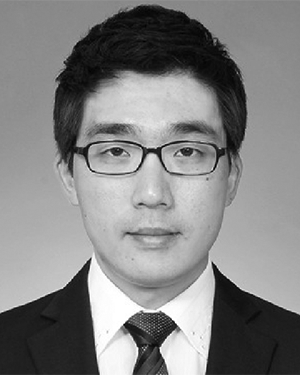Abstract:
Aptamers are short single-stranded nucleic acids that bind to target molecules with high affinity and selectivity. Aptamers are generally identified in vitro by performin...Show MoreMetadata
Abstract:
Aptamers are short single-stranded nucleic acids that bind to target molecules with high affinity and selectivity. Aptamers are generally identified in vitro by performing SELEX (systematic evolution of ligands by exponential enrichment). Complementing the SELEX process, several computational methods have been proposed in the search for aptamers. However, many of these methods cannot be applied for finding new aptamers, either because they are classifiers for determining whether an RNA and protein interact with each other, or because they are limited to a specific target only. Hence, we developed a new random forest (RF) model for finding potential RNA aptamers for a protein target. From an extensive analysis of protein-RNA complexes including RNA aptamers-protein complexes, we identified key features of interacting RNA and protein molecules, and structural constraints on RNA aptamers. The potential RNA aptamers predicted by our method reveal similar secondary and protein-binding structures as the actual RNA aptamers. The RF model showed a reliable performance in both cross validations and independent testing. The key features of interacting RNA and protein molecules and the structural constraints identified in our study were effective in finding potential aptamers for a protein target. Although preliminary, our results are promising, and we believe this approach will be useful in reducing time and money spent on in vitro experiments by substantially limiting the size of the initial pool of nucleic acid sequences.
Published in: IEEE/ACM Transactions on Computational Biology and Bioinformatics ( Volume: 17, Issue: 5, 01 Sept.-Oct. 2020)
Funding Agency:

Department of Computer Engineering, Inha University, Incheon, South Korea
Wook Lee received the BS degree from the Department of Computer Engineering, Inha University, Incheon, Korea, in 2011, and the MS degree from the Department of Computer Engineering, Inha University, Incheon, Korea, in 2014. He is currently working toward the PhD degree at the Department of Computer Engineering, Inha University, Incheon, Korea. His research areas include bioinformatics, machine learning and cancer network.
Wook Lee received the BS degree from the Department of Computer Engineering, Inha University, Incheon, Korea, in 2011, and the MS degree from the Department of Computer Engineering, Inha University, Incheon, Korea, in 2014. He is currently working toward the PhD degree at the Department of Computer Engineering, Inha University, Incheon, Korea. His research areas include bioinformatics, machine learning and cancer network.View more

Department of Computer Engineering, Inha University, Incheon, South Korea
Kyungsook Han received the BS cum laude from Seoul National University, in 1983, the MS cum laude in computer science from KAIST, in 1985, the second MS degree in computer science from the University of Minnesota at Minneapolis, in 1989, and the PhD degree in computer science from Rutgers University, New Jersey, in 1994. She is a professor with the Department of Computer Engineering, Inha University, Korea. Her research a...Show More
Kyungsook Han received the BS cum laude from Seoul National University, in 1983, the MS cum laude in computer science from KAIST, in 1985, the second MS degree in computer science from the University of Minnesota at Minneapolis, in 1989, and the PhD degree in computer science from Rutgers University, New Jersey, in 1994. She is a professor with the Department of Computer Engineering, Inha University, Korea. Her research a...View more

Department of Computer Engineering, Inha University, Incheon, South Korea
Wook Lee received the BS degree from the Department of Computer Engineering, Inha University, Incheon, Korea, in 2011, and the MS degree from the Department of Computer Engineering, Inha University, Incheon, Korea, in 2014. He is currently working toward the PhD degree at the Department of Computer Engineering, Inha University, Incheon, Korea. His research areas include bioinformatics, machine learning and cancer network.
Wook Lee received the BS degree from the Department of Computer Engineering, Inha University, Incheon, Korea, in 2011, and the MS degree from the Department of Computer Engineering, Inha University, Incheon, Korea, in 2014. He is currently working toward the PhD degree at the Department of Computer Engineering, Inha University, Incheon, Korea. His research areas include bioinformatics, machine learning and cancer network.View more

Department of Computer Engineering, Inha University, Incheon, South Korea
Kyungsook Han received the BS cum laude from Seoul National University, in 1983, the MS cum laude in computer science from KAIST, in 1985, the second MS degree in computer science from the University of Minnesota at Minneapolis, in 1989, and the PhD degree in computer science from Rutgers University, New Jersey, in 1994. She is a professor with the Department of Computer Engineering, Inha University, Korea. Her research areas include bioinformatics, machine learning and big data.
Kyungsook Han received the BS cum laude from Seoul National University, in 1983, the MS cum laude in computer science from KAIST, in 1985, the second MS degree in computer science from the University of Minnesota at Minneapolis, in 1989, and the PhD degree in computer science from Rutgers University, New Jersey, in 1994. She is a professor with the Department of Computer Engineering, Inha University, Korea. Her research areas include bioinformatics, machine learning and big data.View more


